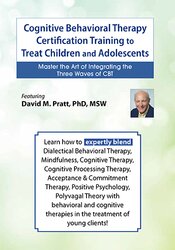Inscrivez-vous dès aujourd'hui à un cours en ligne pour un apprentissage flexible, à votre rythme, sans avoir à respecter un horaire fixe.


-
 Cours en ligneQue vous soyez novice en matière de thérapie par les systèmes familiaux internes (IFS) ou que vous pratiquiez le modèle depuis des années, inscrivez-vous et découvrez comment affiner et personnaliser le modèle pour l'adapter aux besoins uniques de votre client.Valeur : 1 140,66 € *€275,99Que vous soyez novice en matière de thérapie par les systèmes familiaux internes (IFS) ou que vous pratiquiez le modèle depuis des années, inscrivez-vous et découvrez comment affiner et personnaliser le modèle pour l'adapter aux besoins uniques de votre client.21 oct. 2020Que vous soyez novice en matière de thérapie par les systèmes familiaux internes (IFS) ou que vous pratiquiez le modèle depuis des années, inscrivez-vous et découvrez comment affiner et personnaliser le modèle pour l'adapter aux besoins uniques de votre client.Valeur : 1 140,66 € *€275,99
Cours en ligneQue vous soyez novice en matière de thérapie par les systèmes familiaux internes (IFS) ou que vous pratiquiez le modèle depuis des années, inscrivez-vous et découvrez comment affiner et personnaliser le modèle pour l'adapter aux besoins uniques de votre client.Valeur : 1 140,66 € *€275,99Que vous soyez novice en matière de thérapie par les systèmes familiaux internes (IFS) ou que vous pratiquiez le modèle depuis des années, inscrivez-vous et découvrez comment affiner et personnaliser le modèle pour l'adapter aux besoins uniques de votre client.21 oct. 2020Que vous soyez novice en matière de thérapie par les systèmes familiaux internes (IFS) ou que vous pratiquiez le modèle depuis des années, inscrivez-vous et découvrez comment affiner et personnaliser le modèle pour l'adapter aux besoins uniques de votre client.Valeur : 1 140,66 € *€275,99 -
 Cours en ligneGabor Maté va au-delà de l'instruction et démontre exactement comment il utilise la recherche de la compassion pour faciliter la guérison. Regardez-le mettre en œuvre sa méthode unique avec plus de 10 membres de l'auditoire.Valeur : 689,89 € *€275,99Gabor Maté va au-delà de l'instruction et démontre exactement comment il utilise la recherche de la compassion pour faciliter la guérison. Regardez-le mettre en œuvre sa méthode unique avec plus de 10 membres de l'auditoire.15 juillet, 2022Gabor Maté va au-delà de l'instruction et démontre exactement comment il utilise la recherche de la compassion pour faciliter la guérison. Regardez-le mettre en œuvre sa méthode unique avec plus de 10 membres de l'auditoire.Valeur : 689,89 € *€275,99
Cours en ligneGabor Maté va au-delà de l'instruction et démontre exactement comment il utilise la recherche de la compassion pour faciliter la guérison. Regardez-le mettre en œuvre sa méthode unique avec plus de 10 membres de l'auditoire.Valeur : 689,89 € *€275,99Gabor Maté va au-delà de l'instruction et démontre exactement comment il utilise la recherche de la compassion pour faciliter la guérison. Regardez-le mettre en œuvre sa méthode unique avec plus de 10 membres de l'auditoire.15 juillet, 2022Gabor Maté va au-delà de l'instruction et démontre exactement comment il utilise la recherche de la compassion pour faciliter la guérison. Regardez-le mettre en œuvre sa méthode unique avec plus de 10 membres de l'auditoire.Valeur : 689,89 € *€275,99 -
Devenir affilié
Sujets d'actualité :











